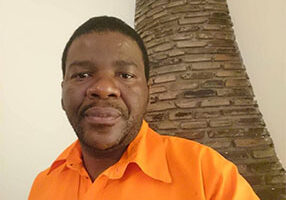A controversial cartoon published by ZimDaily, depicting Sengezo Tshabangu on the body of Ndebele King Lobengula carrying a bag of sugar, has sparked outrage for its tribalism and offensive nature.
The cartoon, titled Chabengula, a blend of Chabangu (Tshabangu) and Lobengula, implies that the self-styled Citizens Coalition for Change (CCC) interim secretary general has “sold out” the democratic struggle, drawing a parallel to the historical myth that Lobengula traded land and mining rights for a bag of sugar during the early days of White settlement.
Critics argue that the cartoon is dehumanising and perpetuates negative stereotypes.
After its publication on ZimDaily’s X account on Wednesday, the outrage on social media grew as several people called the cartoon “tribal, offensive and dehumanising.”
ZimDaily later took down the cartoon and published an apology stating that they are “a national platform and respect ethnical diversity and historical founding fathers of that diversity”.
Critics said the dehumanisation was reminiscent of how Ndebele people are often marginalised in Zimbabwe and demanded an apology from the cartoonist and publication.
“The cartoon shows the primitive nature of the cartoonist. But it also reveals the fake ethnic narrative that is propagated by the establishment. It’s an insult to the Mthwakazi people and nation,” said Patrick Ndlovu, a political analyst.
Ndlovu said dragging King Lobengula into the politics of a political party and spreading a lie that he sold the country for sugar was “dehumanising.”
“That cartoon demonises the identity, history, and culture of the Ndebele people and Zimbabwe as a whole. It was very irresponsible and damaging to the whole country. We demand an apology,” he noted.
Another political analyst, Qalani Nhliziyo, concurred the cartoon was “ really an insult” to the Ndebele monarch and its people.
“Provoceuters post these statements. It is linked to Tshabangu. The cartoonist put Tshabangu’s face and the body of Lobengula. When (the late Morgan) Tsvangirai and (Douglas) Mwonzora recalled people, no one screamed like this,” he said, highlighting that power squabbles in the opposition, especially the CCC should not be used to “grossly mischaracterise people.”
“So this ‘mutengesi’ (sellout) tag is being associated with Ndebele from Lobengula to our current leadership and that is sad for the country because it shows there is no unity of purpose.”
Another commentator, Emmanuel Sibanda said the cartoon smacked of irresponsible journalism.
“Responsible journalism must educate the public and give a voice to those who don’t have it but when journalism moves away from these principles, it shows serious concerns regarding the reliability, integrity, and credibility of that particular media house,” Sibanda said.
He added: “This cartoon is not informative, or helpful regarding what is happening on CCC but adds further speculation. Sadly, this cartoon is a sign of a deeply tribal depiction of the Ndebele people.”
Bernard Magugu went on to say that the use of a cartoon in the media that reflects society reflected a deeper issue in Zimbabwe, which was tribalism.
“It’s not only a disrespect to King Lobengula who was a warrior and statesman but to his people as well. Contrary to what is peddled, the Ndebele people are the ones who strongly resisted colonisation while other groups colluded with them. When these issues are raised, some will object because they have been taught fake news,” he said.
“The sugar narrative was set by colonial historians, packaged and shared in schools to learners. This therefore demonstrates that Zimbabwe needs a lesson on first – history, second unity and then healing.”
Magugu also observed that Tshabangu has been referred to as “Chabangu” saying this deliberate or unintentional act was discrimination of some sort.
“Such usually occurs among members of a marginalised group, where people communicate hostile and derogatory words to further stigmatise that group. We have seen it happen with Tshabangu. I am not endorsing him but I would like to point out that Tshabangu’s actions have been associated with Ndebele people, with little regard for how they may feel about it,” he explained.
Some online users suggested that descendants of King Lobengula sue the publication for dragging the King’s reputation into CCC political squabbles, while others noted the irony that Ndebele people are usually staunch supporters of the opposition but continue to be blamed when problems arise or such crude attacks occur.

